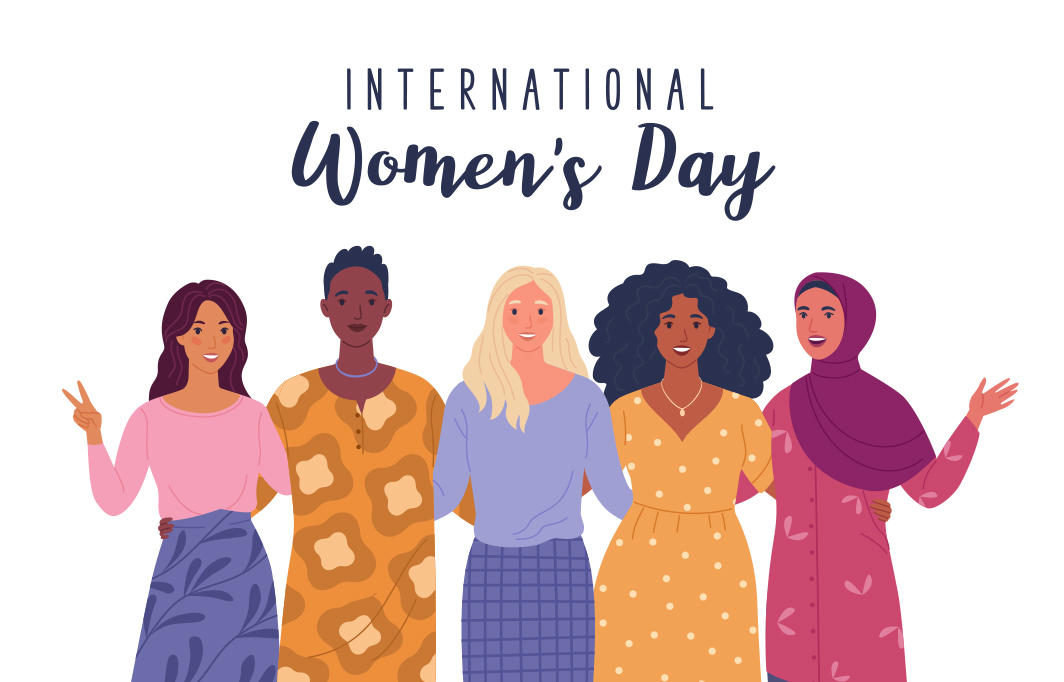International Women’s Day 2021: four perspectives from women in our profession – part one
News
- General news
08 March 2021

‘We have to be careful that the stereotype of women working flexibly doesn’t continue to be related to childcare.’
To mark International Women’s Day today, Monday 8 March, IWFM interviewed four prominent professionals about their experiences of working in workplace and facilities management as women.
Thank you very much to those who took part, including: Jemma Williams, Senior Director FM, JLL; Julie Kortens, Consultant, Director Group; Nikki Lathbury, Managing Director, Hexagon Group/Hexagon FM; and Simone Fenton-Jarvis, Workplace Consultancy Director, Ricoh UK.
We will publish the interviews in three parts, with parts two and three following in the next two days. Across the series of articles, you will read their thoughts and experiences around the opportunities and challenges for women in our profession, issues of equality, and what more can be done to ensure a level playing field for all.
Today’s focus, however, is on the barriers to women in our profession, whether the coronavirus pandemic has affected men and women differently, and the implications of hybrid working.
Q1: The theme of International Women’s Day 2021 is ‘Choose to Challenge’: what barrier is the biggest challenge for women in our profession?
Jemma: ‘That's a hard question to answer because it will be a different challenge for each woman individually. Women of colour face challenges when working with teams on the ground in gaining respect and authority. As you continue your journey to senior management, the lack of people to look up to / aspire to that are 'like you' or like-minded POC at networking events can be off-putting. It then ties into limiting your exposure to potential roles in middle management or higher. From a personal perspective, I'm fortunate to work for a business where I feel that I belong and my voice is heard. I've had the opportunity for my ideas to be brought to fruition. The support to advance my career is there from my male and female colleagues, especially at a senior level.’
Julie: ‘Confidence and belief in yourself. Many women are perfectly capable of success but need role models, supporters, mentors in order to unleash their own potential.’
Nikki: ‘Leaders thinking they need someone from a technical background to lead. This is not always the case. You need great leaders. Like they say, “Be the change, you can’t be what you can’t see!” Antiquated opinions when recruiting: “we’ve always had someone from this background”.’
Simone: ‘The stereotypes which exist around hard and soft FM, the language used and the lack of visible role models.’
Q2: Do you think the coronavirus pandemic has affected women and men differently?
Jemma: ‘Yes, especially women who are carers or parents. As a single parent with a school-aged child and a demanding job, having to then home school (a skill I'm not accustomed to) was overwhelming. I didn't have an additional 4-5 hours needed to school my son, so the extra pressure and feeling letting my son down from an education space played on my mind for the first month to six weeks. Like most mums, the comparison mindset set in – I then had to step back, revaluate and work different hours. Given that 99% of people were going through the same thing, it was effortless to ask for flexible working hours, and JLL did accommodate that.’
Julie: ‘The answer to this question may well be yes but, personally, I do not think that it is as simple as a gender split. We all have different personality traits and differing levels of experience and knowledge. We all also have different personal circumstances. During the pandemic so many different skills have been needed; leadership, empathy, collaboration, communication, etc., have all been essential. These skills cut across gender and we all need to ensure that we are working to a common good, whether that is the survival of an individual business, supporting and managing the team around you or protecting the vulnerable.’
Nikki: ‘I do. There are so many women I know where it has been assumed that women will take responsibility for the home schooling and care. Also, so many of the workers in hospitality, frontline FM and retail are female. So many retail and hospitality workers have lost their roles, too.’
Simone: ‘I don’t want to answer based on clickbait, so let’s hope there are some studies in the future to help and learn from?’
Q3: Will the emergence of hybrid working as a result of the pandemic help equality of opportunity?
Jemma: ‘I hope we will see more work from home dads and mums, job sharing amongst both genders instead of part-time – which means full-time if you're not sharing the role with another.’
Julie: ‘This is a point which we will need to review once the data around changes in working patterns is available. In an ideal world, the ability to work at home and to avoid the daily commute to a specific place of work should benefit many. Working parents may well benefit but, if I had a concern, it is that many low-paid workers are unable to work from home in any case. The proportion of women in these roles remains high so the overall impact on equality of opportunity may well be skewed.’
Nikki: ‘I believe so, we are seeing it with some of our clients already. They are looking at WFM contracts so they can open up the market to the best talent, rather than being geographically constrained.’
Simone: ‘I really hope society can break away from the hegemonic ways. We have to be careful that the stereotype of women working flexibly doesn’t continue to be related to childcare. We also need to make sure that mentoring/promotions/access to opportunities isn’t affected by hybrid working, whether male, female or somewhere in between!’
Part two of the interviews will be available on Tuesday 9 March.
